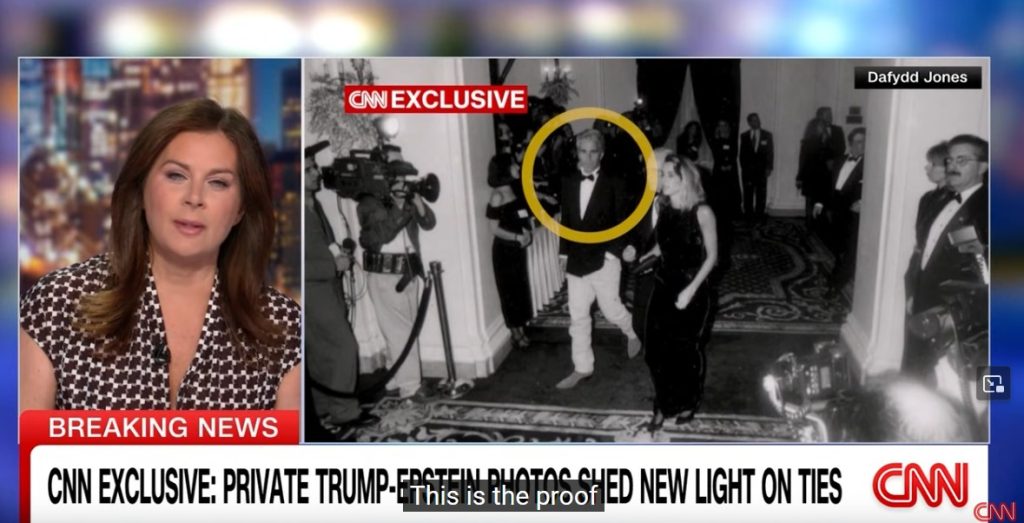Last Updated on July 24, 2025 by ThePublic
In a revelation that has sent shockwaves through an already polarized nation, The Wall Street Journal reported on July 23, 2025, that President Donald Trump’s name appears multiple times in the Justice Department’s files related to Jeffrey Epstein, the notorious sex offender whose connections to the elite have long fueled public intrigue and suspicion. According to senior administration officials, Attorney General Pam Bondi informed Trump of this fact during a May briefing at the White House, a meeting that also included Deputy Attorney General Todd Blanche. Yet, despite Trump’s public campaign promises to unveil the truth about Epstein’s network, the Justice Department’s subsequent decision to withhold these files from public view raises chilling questions about transparency, accountability, and the potential for a cover-up at the highest levels of power.
The Epstein case has long been a lightning rod for conspiracy theories, with many Americans, nearly 90% according to recent polls, demanding the release of all relevant documents to shed light on the financier’s web of influential associates. Trump himself stoked these expectations, repeatedly hinting during his 2024 campaign that his administration would expose the “global elites” tied to Epstein’s crimes. Yet, when the Justice Department and FBI concluded their review in early July, they issued a memo declaring Epstein’s death a suicide and asserting there was no “client list” or further evidence warranting investigation. The decision to keep the remaining files under wraps, citing the presence of child pornography and victims’ personal information, has ignited a firestorm of outrage, particularly among Trump’s own MAGA base, who view it as a betrayal of his pledges.
What makes this development particularly damning is Trump’s own denial of knowledge about his inclusion in the files. When questioned by ABC News last week, he claimed, “No, no,” asserting that Bondi had only given him a “very quick briefing” without mentioning his name. This contradicts the Journal’s reporting, which details a specific May meeting where Bondi and Blanche explicitly informed Trump that his name appeared multiple times in the documents, alongside other high profile figures. The files, described as containing “unverified hearsay” about those who socialized with Epstein, reportedly include hundreds of names, but the refusal to release them, coupled with Trump’s apparent misrepresentation, casts a long shadow over the administration’s credibility.
The timing of these revelations only deepens the suspicion of a cover-up. Just weeks after Bondi’s briefing, the Justice Department announced it would not release additional Epstein files, reversing earlier promises of transparency. This decision coincided with a broader effort to distance Trump from the scandal, including a White House statement dismissing the Journal’s reporting as “fake news” and emphasizing that Trump had severed ties with Epstein years ago after kicking him out of his Mar-a-Lago club for being a “creep.” Yet, the administration’s actions tell a different story. In February, Bondi distributed binders of Epstein-related materials to conservative influencers, some of which included Trump’s name and even his family members’ phone numbers, without redaction, a move that has drawn internal criticism for failing to shield the president.
The administration’s response to the backlash has been a clumsy mix of deflection and damage control. Trump directed Bondi to seek the unsealing of grand jury transcripts related to Epstein and Ghislaine Maxwell, but these efforts were swiftly rebuffed by federal judges in Florida and New York, who cited strict grand jury secrecy rules. Meanwhile, the House Oversight Committee, spurred by bipartisan pressure, voted to subpoena the Justice Department for the Epstein files and even summoned Maxwell for a deposition, signaling a growing distrust in the administration’s handling of the case. These moves, however, feel like too little, too late, as the public’s demand for answers collides with a wall of bureaucratic resistance.
The implications of this secrecy are profound. Trump’s long-standing friendship with Epstein, documented through photographs, flight logs, and his own 2002 praise of Epstein as a “terrific guy” who liked women “on the younger side,” has always been a point of scrutiny. The Journal’s earlier report of a salacious birthday letter from Trump to Epstein in 2003, complete with a crude drawing and a signature Trump denies, only intensifies the perception that there is more to hide. Trump’s $10 billion defamation lawsuit against the Journal and its owner, Rupert Murdoch, appears less like a defense of his reputation and more like an attempt to intimidate the press into silence.
The refusal to release the Epstein files, despite public outcry and Trump’s own campaign rhetoric, suggests a troubling prioritization of political self-preservation over justice for Epstein’s victims. The administration’s claim that the files contain sensitive material is a convenient shield, but it fails to explain why redacted versions cannot be made public to balance victim privacy with the public’s right to know. The involvement of Bondi and Blanche, both former Trump attorneys, in briefing the president on an active investigation further blurs the line between politics and law enforcement, undermining the Justice Department’s independence.

This scandal exposes a deeper rot, a system where the powerful protect their own, even as the truth about Epstein’s network remains buried. The administration’s mixed signals, promising transparency while stonewalling, denying knowledge while pursuing legal maneuvers, reek of obfuscation. If Trump’s name in the files is indeed inconsequential, as the White House insists, then why the secrecy? Why the lies? The American public deserves answers, not a masterclass in political misdirection. Until the Epstein files are fully disclosed, the specter of a cover-up will loom large, eroding trust in an administration that promised to drain the swamp but seems intent on keeping its darkest secrets submerged.
Justice Department Told Trump in May That His Name Is Among Many in the Epstein Files – WSJ
https://www.wsj.com/politics/justice-department-told-trump-name-in-epstein-files-727a8038


